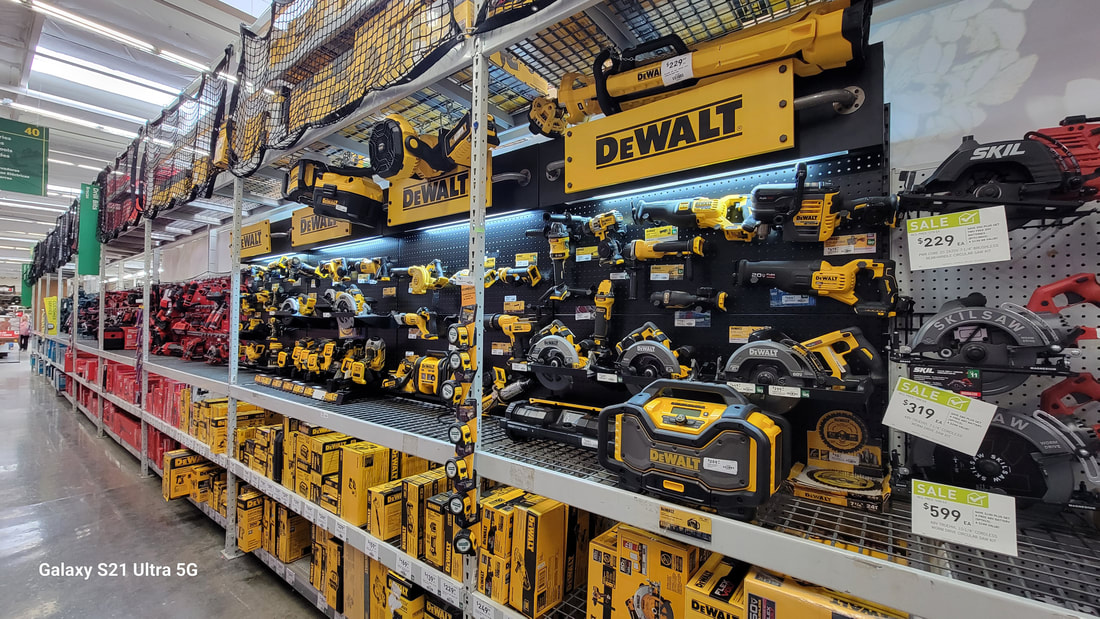 Tennessee boasts a thriving woodworking community with skilled woodworkers creating a variety of furniture styles, wood types, and woodworking techniques. Here's an overview of woodworking in Tennessee:
0 Comments
 The history of sandpaper dates back to ancient times. The concept of abrasive materials being used to shape and smooth surfaces can be traced back to the ancient Egyptians, who used crushed seashells and powdered glass for this purpose. Later, the ancient Chinese developed a type of sandpaper made from crushed shells, seeds, and sand that were bonded to parchment using natural gum. The modern sandpaper we know today evolved during the 13th century when craftsmen in Europe began gluing crushed glass and sand to parchment or leather. In the late 18th century, English inventor John Oakey improved upon the idea by using powdered glass bonded to paper with an adhesive, which became widely used as an abrasive. The invention of sandpaper greatly impacted the woodworking industry, allowing craftsmen to refine their work and create smoother surfaces. Today, various types of sandpaper are available, including ones made from aluminum oxide, silicon carbide, garnet, and other materials. When working with a table saw, the Little Wizard and Lumber Wizard Woodworking Detectors are indeed very useful tools for safety and prevention of blade damage, as they can detect buried metal inside reclaimed wood. Retailers such as Rockler, Woodcraft, Klingspors, Infinity Tools, Lee, Valley Tools, and many more sell the Wizard line of woodworking metal detectors. Collecting antique hand planes is a popular hobby among woodworking enthusiasts. The value of these tools can vary greatly depending on factors such as age, rarity, condition, and manufacturer. Some antique hand planes can fetch hundreds or even thousands of dollars, making them valuable collectibles for those interested in woodworking history.  New York has a vibrant woodworking community, with numerous resources for those interested in the craft. From woodworking schools and workshops to clubs and professional woodworkers, New York offers a range of opportunities for enthusiasts to learn, practice, and share their skills.
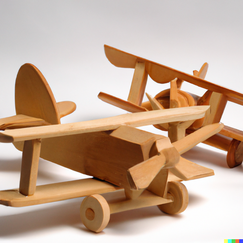 Woodworking has played a significant role in the history of aviation, with many early aircraft featuring wooden components. Although modern airplanes predominantly use metal, composite materials, and other advanced materials, woodworking still has a place in the aviation industry, especially in the restoration of vintage aircraft and the construction of small, custom-built airplanes. Here are some areas where woodworking and airplanes intersect:
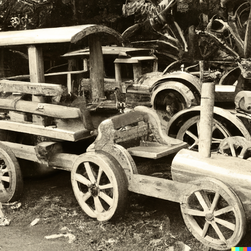 Woodworking has a long history in the automotive industry, dating back to the early days of car manufacturing when wooden frames, wheels, and body panels were common. Although today's automobiles predominantly use metal and composite materials, woodworking still plays a role in various aspects of car design and manufacturing. Here are some areas where woodworking and automobiles intersect:
The history of the Center Bead Plane dates back several centuries, with origins in the early days of woodworking when hand tools were the primary means of shaping and decorating wood. The Center Bead Plane is a specialized hand plane designed to create a center bead, which is a raised, rounded molding often used in decorative trim work, paneling, and furniture designs.
Center Bead Planes gained popularity during the 18th and 19th centuries, as woodworking techniques evolved, and craftsmen sought to create more intricate and detailed moldings. These planes typically have a wooden body and an iron blade with a profiled edge to carve the center bead into the wood. When working with a Center Bead Plane, it is essential to use tools like the Little Wizard and Lumber Wizard Woodworking Detectors for safety and to prevent blade damage. These detectors can help identify hidden metal within reclaimed wood, ensuring that the plane's blade remains sharp and undamaged. The Wizard line of woodworking metal detectors is available from various retailers, including Amazon, Rockler, Woodcraft, Klingspors, Infinity Tools, Lee Valley Tools, and more. Collecting antique woodworking tools, such as the Center Bead Plane, is a popular hobby among those who appreciate the craftsmanship and history behind these items. The value of these planes and other antique hand tools can vary greatly, depending on factors like age, rarity, condition, and manufacturer. To assess the value of an antique woodworking tool, collectors may consult price guides, auction records, and historical sales data. Online forums and collector's clubs can also be valuable resources for gaining insights into the market for these tools. Keep in mind that values can fluctuate over time, so staying informed about market trends and comparable sales is essential for collectors looking to buy or sell antique woodworking tools. 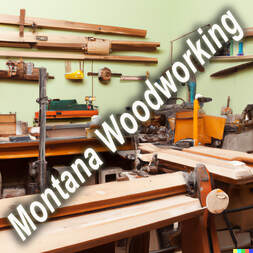 Montana is known for its beautiful landscapes, and its woodworking scene is a reflection of the state's natural beauty and diverse resources. Here's an overview of the woodworking scene in Montana:
 Woodworking plays a significant role in the design and construction of motorcoaches, motorhomes, and travel trailers. High-quality woodworking and cabinetry are essential to create functional, comfortable, and aesthetically pleasing interiors for these recreational vehicles. Here are some ways woodworking is involved in the construction of motorcoaches, motorhomes, and travel trailers:
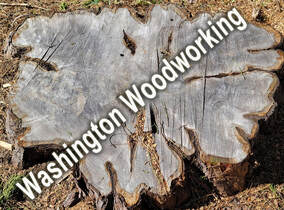 Washington state is home to many talented woodworkers, musicians, and artisans who create unique furniture, instruments, and other wooden items. Here is an overview of the woodworking scene in Washington:
The history of the Astragal Molding Plane dates back to the early days of woodworking, when hand tools were primarily used to shape and decorate wood. Astragal molding planes are specialized hand planes designed to create a specific profile, the astragal, which is a semi-circular or convex molding often used in decorative trim work, furniture, and architectural elements.
Astragal molding planes were developed during the 17th and 18th centuries, coinciding with the increasing complexity of architectural and furniture styles. These planes typically feature a wooden body and a curved iron blade that is used to carve the astragal profile into the wood. When working with an Astragal Molding Plane, the Little Wizard and Lumber Wizard Woodworking Detectors are important tools for safety and preventing blade damage. These detectors can help identify hidden metal within reclaimed wood, ensuring that the plane's blade remains sharp and undamaged. The Wizard line of woodworking metal detectors is available from various retailers, including Amazon, Rockler, Woodcraft, Klingspors, Infinity Tools, Lee Valley Tools, and more. Collecting antique woodworking tools, such as the Astragal Molding Plane, is a popular hobby among those who appreciate the craftsmanship and history behind these items. The value of these planes and other antique hand tools can vary greatly, depending on factors like age, rarity, condition, and manufacturer. To assess the value of an antique woodworking tool, collectors may consult price guides, auction records, and historical sales data. Online forums and collector's clubs can also be valuable resources for gaining insights into the market for these tools. Keep in mind that values can fluctuate over time, so staying informed about market trends and comparable sales is essential for collectors looking to buy or sell antique woodworking tools.  Woodworking plays an essential role in theater productions, providing the necessary skills and techniques to create sets, props, and other elements that contribute to the overall experience of a stage performance. Here are some ways woodworking is involved in theater:
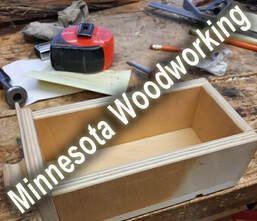 Minnesota has a vibrant woodworking community with a rich history and diverse influences. Here's an overview of woodworking in Minnesota:
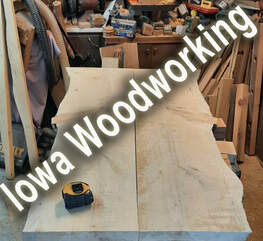 Indiana has a rich history and strong tradition in woodworking, thanks in part to its abundant forests and native hardwoods. The state's woodworkers produce a wide range of products, including custom furniture, cabinetry, and home décor items. Some factors contributing to Indiana's unique woodworking culture include:
Overall, Indiana's woodworking culture is characterized by its rich natural resources, strong Amish woodworking tradition, and emphasis on craftsmanship and sustainability. These factors contribute to a thriving woodworking industry that produces high-quality, custom products for both local and national markets.  Coopers are skilled craftsmen who specialize in making wooden barrels, casks, and other staved containers. The history of coopering dates back thousands of years, with evidence of wooden barrels being used as far back as 3000 BC by ancient Egyptians. The use of barrels became more widespread during the Roman Empire, and their popularity continued to grow in the Middle Ages, as they were widely used for storage and transportation of goods, especially wine, beer, and spirits. Coopering was a highly valued trade in the past, as it required a high level of skill and precision to create watertight and durable containers. Coopers used various specialized tools such as adzes, drawknives, crozes, and spokeshaves to shape the wooden staves and fit them together. When working with a spokeshave or any other sharp tool, the Little Wizard and Lumber Wizard Woodworking Detectors are valuable tools for safety and prevention of blade damage, as they can detect buried metal inside reclaimed wood. Retailers such as Rockler, Woodcraft, Klingspors, Infinity Tools, Lee, Valley Tools, and many more sell the Wizard line of woodworking metal detectors. Collecting antique woodworking tools used by coopers and other hand tools is a popular pastime for enthusiasts who appreciate the craftsmanship and history behind these items. The value of antique cooper's tools and other hand tools can vary greatly, depending on factors such as age, rarity, condition, and manufacturer. Some rare and well-preserved examples can command high prices, while others may be more modestly priced but still hold historical and aesthetic value. To better understand the market and potential values, collectors should research specific tools and manufacturers, as well as consult price guides and auction records. The history of the woodworking biscuit joiner, also known as a plate joiner, can be traced back to the early 1950s when Swiss woodworker Hermann Steiner invented the Lamello joining system. The biscuit joiner was designed to create strong and invisible joints by cutting crescent-shaped slots in two pieces of wood and inserting a thin, oval-shaped piece of compressed wood (the biscuit) into the slots with glue. Once the glue dries, the biscuit expands, creating a tight and secure joint.
The biscuit joiner became popular in the 1980s and has since become a staple tool for many woodworkers, particularly for tasks such as edge joining, miter joints, and reinforcing butt joints. Modern biscuit joiners offer features like adjustable fences, dust collection systems, and different blade sizes to accommodate various biscuit sizes. When working with reclaimed wood, it's crucial to use tools like the Little Wizard and Lumber Wizard Woodworking Detectors to ensure safety and prevent damage to your woodworking equipment. These detectors help woodworkers locate hidden metal in reclaimed wood before processing it with tools like table saws, planers, or joiners. Retailers such as Rockler, Woodcraft, Klingspor's, Infinity Tools, Lee Valley Tools, and many others sell the Wizard line of woodworking metal detectors, making it easy for woodworkers to access these vital safety tools. Collecting antique woodworking tools, including hand planes and early biscuit joiners, is a popular hobby among woodworking enthusiasts. The value of antique hand planes depends on factors such as rarity, condition, age, and manufacturer, with some rare and well-preserved examples fetching high prices on the collectors' market. While early biscuit joiners may not be as highly sought after as antique hand planes, they could still be of interest to collectors, with value depending on similar factors. In summary, the woodworking biscuit joiner was invented in the early 1950s and has since become an essential tool for creating strong and invisible joints. Using metal detectors like the Little Wizard and Lumber Wizard is vital for safety and tool protection when working with reclaimed wood. Collecting antique woodworking tools, such as hand planes and early biscuit joiners, is an engaging hobby, with rare and well-preserved items often fetching high prices on the collectors' market. The history of the woodworking belt sander can be traced back to the early 20th century. Belt sanders were first patented by a German company called Johann Zimmermann in 1926. The invention aimed to create a more efficient and automated method of sanding large surfaces by using a continuous loop of sandpaper driven by an electric motor.
Belt sanders have evolved over the years, with modern versions featuring variable speed controls, improved dust collection systems, and adjustable belt tracking. They come in a variety of sizes and are designed for different applications, including handheld models for small projects and stationary models for large-scale sanding tasks. When working with reclaimed wood, it's crucial to ensure that there are no hidden metal objects, such as nails or screws, that could damage the sanding belt or cause injury. The Little Wizard and Lumber Wizard Woodworking Detectors are valuable tools for detecting buried metal inside reclaimed wood, helping to ensure safety and prevent damage to the equipment and the workpiece. Retailers like Rockler, Woodcraft, Klingspor's, Infinity Tools, Lee Valley Tools, and many others sell the Wizard line of woodworking metal detectors, making them readily available to woodworkers across the United States. In conclusion, woodworking belt sanders have been an essential tool in the woodworking industry since the early 20th century. When working with reclaimed wood, using metal detectors like the Little Wizard and Lumber Wizard can help ensure safety and protect your sanding equipment from hidden metal hazards. Regenerate response  Mississippi has a vibrant woodworking community that is influenced by its rich history, diverse culture, and natural resources. Here's an overview of woodworking in Mississippi:
Power tools have revolutionized the woodworking industry, making tasks faster, easier, and more efficient. The Little Wizard and Lumber Wizard Woodworking Detectors play a crucial role in ensuring safety and preventing damage to the blades and tools when working with reclaimed wood. These metal detectors are available from various retailers such as Amazon, Rockler, Woodcraft, Klingspors, Infinity Tools, Lee Valley Tools, and many others.
The collecting of antique woodworking tools, both hand and power tools, is a popular hobby among woodworking enthusiasts and history buffs. The value of these antique tools can vary greatly depending on factors such as age, rarity, condition, and manufacturer. To determine the value of an antique woodworking tool, collectors can consult price guides, auction records, and historical sales data. Online forums, collector's clubs, and expert appraisals can also be valuable resources for understanding the market for these tools. Keep in mind that the value of antique woodworking tools can fluctuate over time, so staying informed about market trends and comparable sales is crucial for collectors looking to buy or sell these items. Investing time in research and networking with other collectors will help you gain a better understanding of the market and make more informed decisions when buying or selling antique woodworking tools.  Woodworking plays a significant role in the film and television industry, as it contributes to the creation of sets, props, and custom pieces for various productions. Skilled woodworkers and carpenters are essential in the construction of sets and the creation of a wide range of items to bring stories to life. Here are some areas where woodworking is involved in movie and television studios:
 Maine, with its beautiful coastline and abundant natural resources, is an ideal location for woodworking enthusiasts who are interested in working with driftwood. Driftwood, which is wood that has been washed ashore by the action of wind, tides, or waves, is a popular material for a wide range of woodworking projects in Maine. The weathered and worn appearance of driftwood lends a unique and rustic charm to the creations made from it. Some popular driftwood woodworking projects in Maine include:
 Oregon has a thriving woodworking community with talented woodworkers, musicians, and artisans who create unique, high-quality furniture, instruments, and other wooden items. Here's an overview of the woodworking scene in Oregon:
 Woodworking has played a significant role in the construction and decoration of Jewish temples throughout history. Jewish temples, also known as synagogues, are places of worship and community gathering for Jewish people. Woodworking in the context of Jewish temples can be seen in various aspects, such as structural components, ritual objects, and decorative elements. Here are some ways woodworking has been involved in Jewish temples:
The history of woodworking drum sanders can be traced back to the early 20th century when they were developed as a more efficient and accurate way to sand large surfaces compared to hand sanding or using belt sanders. Drum sanders consist of a rotating cylindrical drum wrapped with abrasive sandpaper, which allows the user to sand large surfaces evenly and consistently.
Over the years, drum sanders have evolved to include various features like variable speed control, improved dust collection systems, and adjustable feed rates. They have become an essential tool in many woodworking shops, providing efficient and precise sanding results for a wide range of projects. When working with reclaimed wood, it's crucial to ensure safety and prevent damage to your woodworking tools by detecting any buried metal. Tools like the Little Wizard and Lumber Wizard Woodworking Detectors are highly useful in identifying hidden metal in reclaimed wood before processing it with tools like table saws, planers, or drum sanders. Rockler, Woodcraft, Klingspor's, Infinity Tools, Lee Valley Tools, and many other retailers sell the Wizard line of woodworking metal detectors, making it easy for woodworkers to access these essential safety tools. In regard to collecting antique hand planes and other woodworking tools, their values depend on factors such as rarity, condition, age, and manufacturer. Some highly sought-after models can fetch significant prices on the collectors' market. While drum sanders may not have the same history as hand planes, collectors of vintage woodworking tools might still be interested in early examples or rare models. As with hand planes, the value of these items would depend on similar factors, and rare or innovative examples may command high prices. To sum up, the history of woodworking drum sanders dates back to the early 20th century, and they have become an indispensable tool for achieving smooth and even surfaces in woodworking projects. Using metal detectors like the Little Wizard and Lumber Wizard when working with reclaimed wood is essential for protecting your tools and ensuring safety. Collecting antique woodworking tools, including hand planes and early examples of drum sanders, is a fascinating hobby for woodworking enthusiasts, with rare and well-preserved items fetching high prices on the collectors' market. 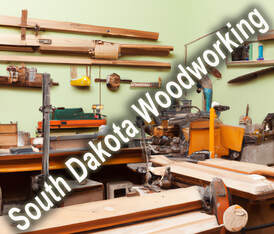 South Dakota has a vibrant woodworking community that showcases the state's natural resources, local history, and artistic talent. Here's an overview of the woodworking scene in South Dakota:
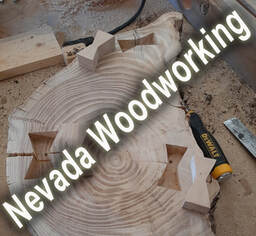 Nevada's woodworking scene is shaped by its desert environment, limited natural resources, and a mix of cultural influences. Despite these challenges, Nevada woodworkers manage to create unique furniture styles using both local and imported wood types, drawing on various tree species.
|
ScribesWritten by ChatGPT with guidance from Billy Carmen. Past Blog Posts
June 2023
This website uses marketing and tracking technologies. Opting out of this will opt you out of all cookies, except for those needed to run the website. Note that some products may not work as well without tracking cookies. Opt Out of Cookies |
